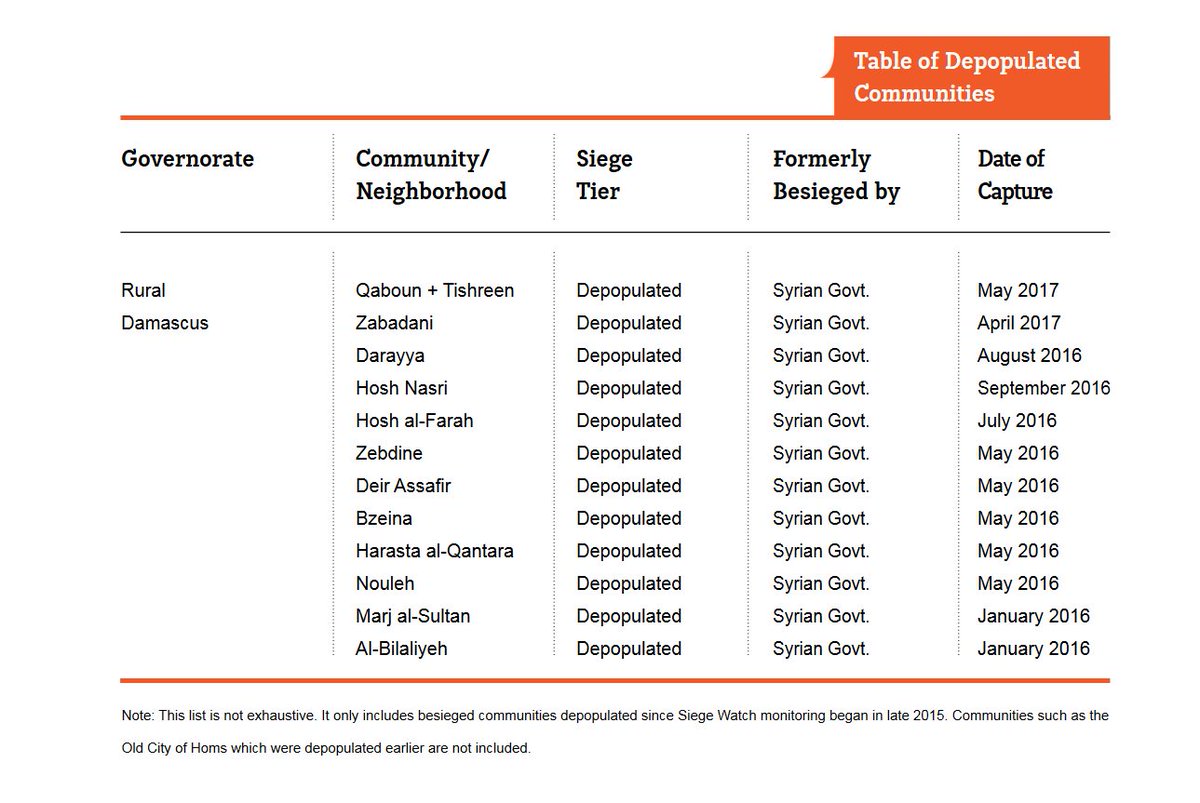
'An estimated 821,210 people remain trapped in at least 34 besieged communities across the country and nearly 1.7 million additional Syrians live in “Watchlist” areas, under threat of intensified siege and abuse. The Syrian government and its allies remain responsible for the vast majority of all of the sieges in Syria and for most of the threats to “Watchlist” communities. ISIS-controlled al-Raqqa city was added to the Siege Watch “Watchlist” for the first time ever, after being surrounded by US-backed Syrian Democratic Forces (SDF) in June. Two more “Watchlist” communities – Barzeh and Qaboun – capitulated to forced surrender agreements in the face of humanitarian crises caused by Syrian government’s “surrender or die” strategy. Both were subjected to forced population transfers uprooting thousands of civilians. Qaboun was entirely depopulated and removed from project monitoring efforts. At least six suspected chemical attacks were launched against opposition fighters in Jobar and Ein Tarma during the reporting period. In one case, victims showed symptoms consistent with exposure to a nerve agent. Eastern Ghouta, the largest remaining besieged enclave in the country, is the most likely target of the Syrian government’s next major scorched earth campaign after pro-government forces capture Jobar. More than 420,000 people are at risk. Humanitarian conditions continued to deteriorate in Deir Ezzor, where besieged civilians are bracing for escalated hostilities.'

No comments:
Post a Comment